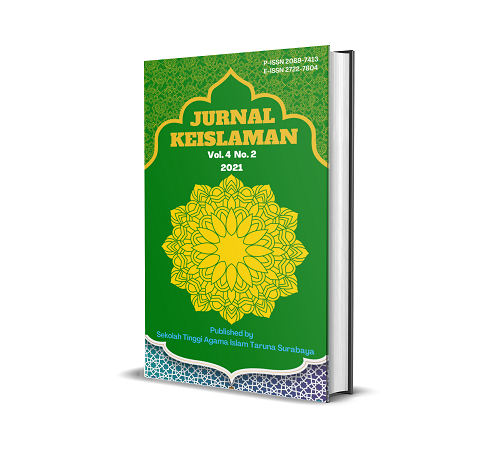DOUBLE MOVEMENT: HERMENEUTIKA ALQURAN FAZLUR RAHMAN
Abstract
This study aims to analyze two types of interpretation in the double movement theory presented by Fazlur Rahman in his hermeneutical interpretation. As well as its application to the verses of the Koran related to pluralism, inclusivism, and polygamy. By using a qualitative methodology with the type of library research on the interpretation analysis presented by Fazlur Rahman, conclusions and results were found that there was a difference between Fazlur Rahman's interpretation and the interpretation of his predecessors. Despite the disagreements above, Fazlur Rahman's idea about the importance of contextual interpretation which he formulated in what he called double movements was too valuable not to be appreciated. While the various shortcomings as raised by several commentators as described above, it is our duty to complete them.Copyright (c) 2021 Vicky Izza

This work is licensed under a Creative Commons Attribution-ShareAlike 4.0 International License.
Authors who publish with this journal agree to the following terms:
- Authors retain copyright and grant the journal right of first publication with the work simultaneously licensed under a Creative Commons Attribution-ShareAlike that allows others to share the work with an acknowledgement of the work's authorship and initial publication in this journal.
- Authors are able to enter into separate, additional contractual arrangements for the non-exclusive distribution of the journal's published version of the work (e.g., post it to an institutional repository or publish it in a book), with an acknowledgement of its initial publication in this journal.
- Authors are permitted and encouraged to post their work online (e.g., in institutional repositories or on their website) prior to and during the submission process, as it can lead to productive exchanges, as well as earlier and greater citation of published work (See The Effect of Open Access).






















